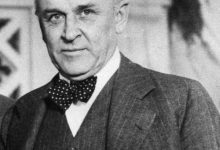Biography of James Joule, English physicist and one of the founders of thermodynamics

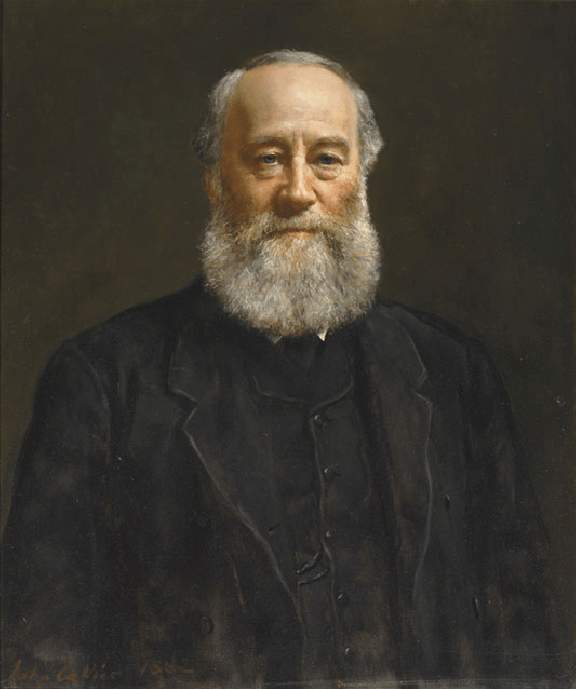 James Joule, English physicist
James Joule, English physicistJames Joule did many experiments to prove that heat is a form of energy. His and other scientist's experiments led to the creation of one of the main laws of science called the law of conservation of energy. In honor of James Joule, the unit of measurement of energy and work is named “Joule”. In this article, you will learn about the biography of this physicist.
A summary of the biography of James Jewell, James Prescott Jewell
Name: James Prescott Jules
Born: December 24, 1818
Death: October 11, 1889
Place of birth: Salford, England
Wife: Amelia Grimes
Children: Benjamin Arthur, Alice Amelia, Henry
Award: Copley Medal
Biography of James Prescott Jules
James Prescott Joule, born on December 24, 1818 – died on October 11, 1889, was an English physicist who was born into a wealthy family. James Jewell was interested in scientific experiments and learning from an early age. As a child, he loved the power of electricity and tried to use it with his brother, even going as far as doing childish pranks and trying to electrocute others.
James Jewell entered his father's factory at a young age and started working there. Because of his busy schedule, he avoided scientific experiments until around 1840 when he decided to investigate whether to replace the factory's steam engines with electric ones. To choose the best economic plan, James Joule was very sensitive and this sensitivity made him come up with a new idea and make progress in the field of physics.
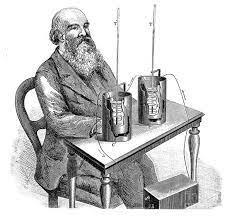 James Joule is one of the founders of thermodynamics
James Joule is one of the founders of thermodynamicsWith his research and investigations, James Joule was able to discover Joule's first law in 1941. This law specified that the passage of electricity through a conductor leads to the generation of heat. He did many experiments to show that heat is a form of energy. These experiments, along with the efforts of several other scientists, led to the creation of one of the main laws of science called the “law of conservation of energy”. This law states that energy is not destroyed in physical and chemical reactions, but is converted from one form to another.
In 1848, James Prescott Joule published an article in which he discussed the theory of the movement of gases, in which he estimated the speed of movement of gas molecules. A few years later, James Prescott Joule and the Scottish physicist William Thomson (known as Lord Kelvin) discovered that if we allowed a gas to expand easily, the temperature would drop. This was the initial idea that led to the construction of the refrigerator, which is widely used in industries and homes today, and has created a great transformation in the food industry and the food supply chain.
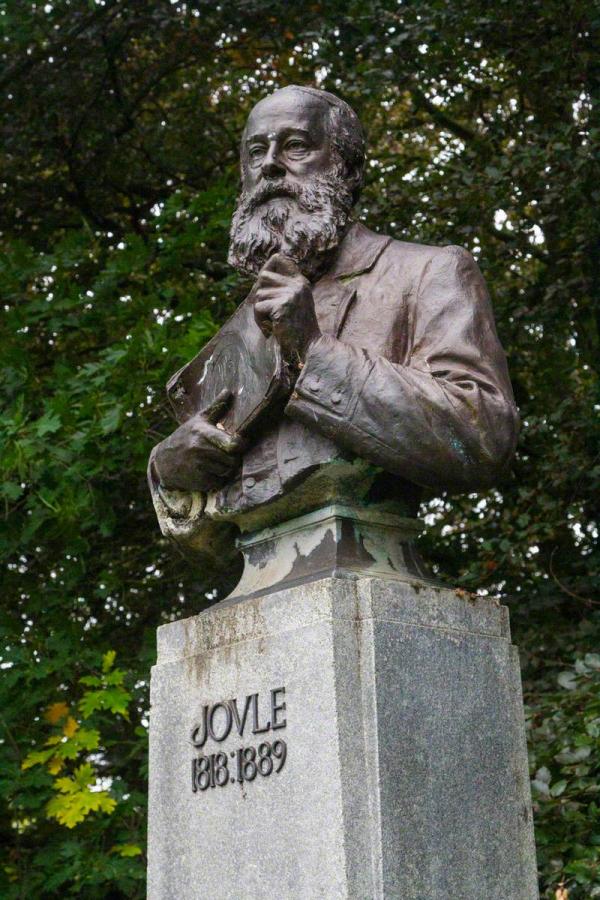 Statue of James Jewell
Statue of James JewellMarriage of James Jewell
James Jewell married Amelia Grimes in 1847. He died in 1854, seven years after their marriage. They had three children: a son, Benjamin Arthur Jewell (1850-1922), a daughter, Alice Amelia (1852-1889), and a son, Joe (born 1854, died three weeks later).
The death of Jamiz Jul
James Prescott Jewell died on October 11, 1889 at the age of 70 in England and was buried in Brooklands Cemetery. The number “772.55” is written on his tombstone.
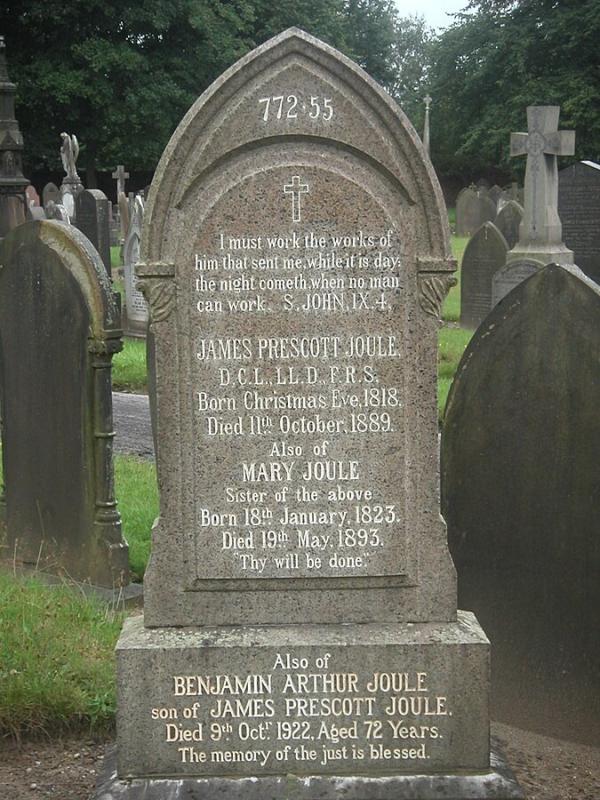 Tombstone of James Prescott Jules
Tombstone of James Prescott JulesSome of the honors of James Jewell
* Member of the Royal Society (1850)
* Received the Royal Medal (1852), “for his paper on the mechanical equivalent of heat.”
* Received the Copley Medal (1870), “for his experimental researches on the dynamical theory of heat”
* President of Manchester Literary and Philosophical Society (1860)
* President of the British Association for the Advancement of Science (1872, 1887)
* Honorary membership of the Institute of Engineers and Shipbuilders in Scotland (20) (1857)
The final words of James Jewell's biographical article
James Joule, one of the most prominent physicists in history, is known as one of the founders of thermodynamics. By conducting numerous experiments, he established the foundations of the theory of thermodynamics and left valuable works in this field. He died in 1889.
compilation: Cover biographical section
